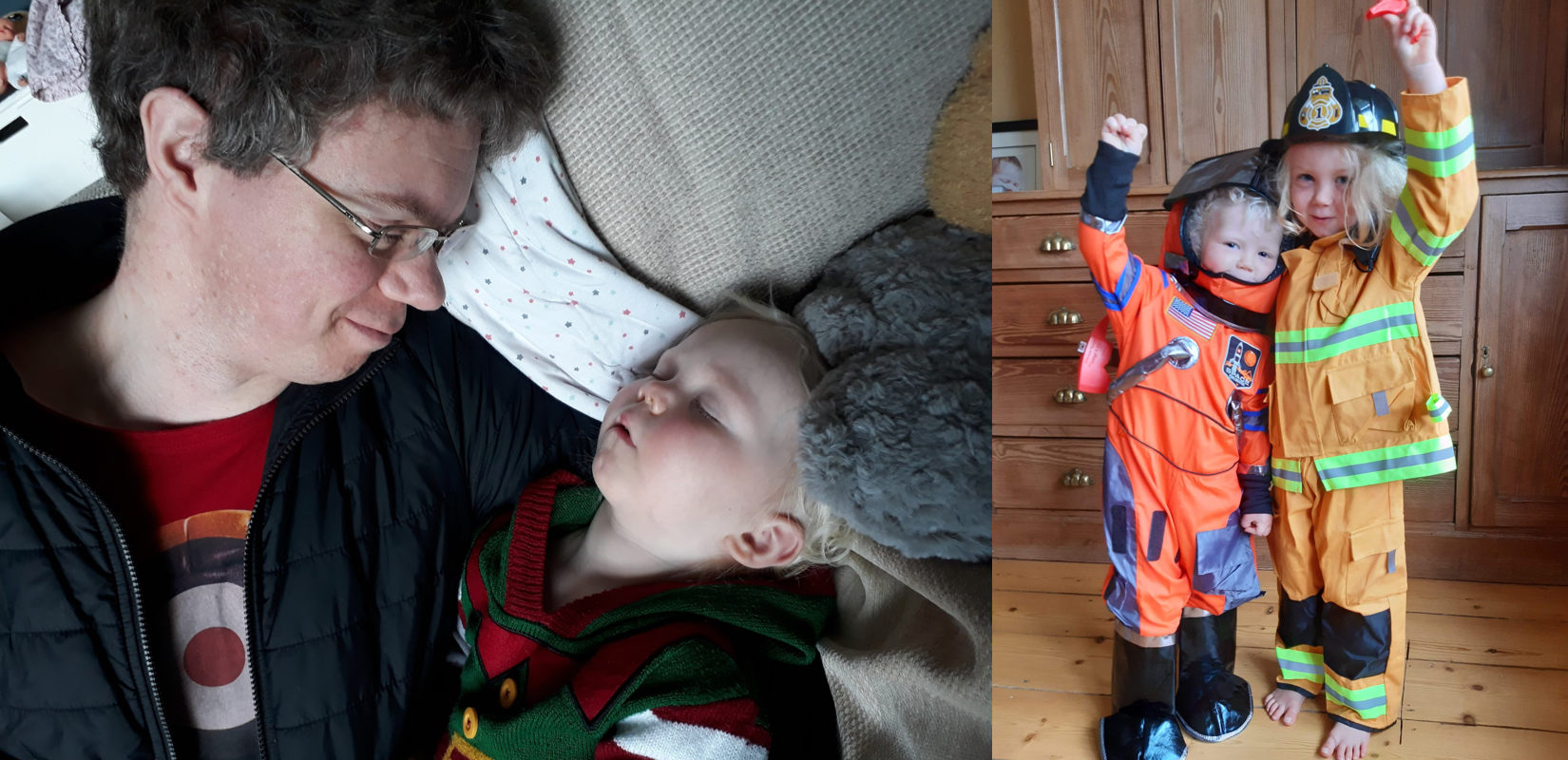Welcoming 2021 with our reflections on 2020
John · December 15, 2020As 2020 draws to a close, we collected together some personal stories from our team, looking back on a year that has been very different to the one we thought it would be.
As we did last year, we’ve ordered them in the order in which we received them, so you get a very cute picture right at the start. Plus you can see which of the two Johns is the most organized! 😊
Wishing you a very Happy New Year from the Overleaf team!
PS: In case you’d like to look further back, here are the 2017, 2018, and 2019 posts.
Reflecting on 2020
Quick links to each contribution:
- John L-M
- Simon
- Graham
- Mary Anne
- Christopher
- Liz
- Chrystal
- Roberta
- LianTze Lim
- Ali
- Miguel
- Natalie
- John H
John L-M
Despite everything else that’s been going on in 2020, it’s been a wonderful (if sometimes exhausting) first year with my son, Alden. As you can see below, he’s already hard at work improving Overleaf.
I know it has been a tough year for several of us on the development team, but we nevertheless accomplished a lot! On the people side, we established an engineering career ladder and promoted Ali and Simon to team lead and engineering manager roles, respectively. This is a big step forward and away from me directly managing everyone, which sets us up for continued growth next year. On the technical side, we’ve as usual been working hard behind the scenes to keep up with the demands of our (well) over 6 million users and hundreds of institutional and enterprise customers. More publicly, we’ve shipped many bug fixes and usability improvements, the very popular file outline in the editor, four quarterly releases of our on-premises Community Edition and Server Pro products, a TeX Live upgrade, and a few updates as yet visible only to our pioneering beta program users! We’ve also set up more regular (fully remote) hackathons, which hint at some of the things we might be working on next year. Here’s looking forward to 2021!
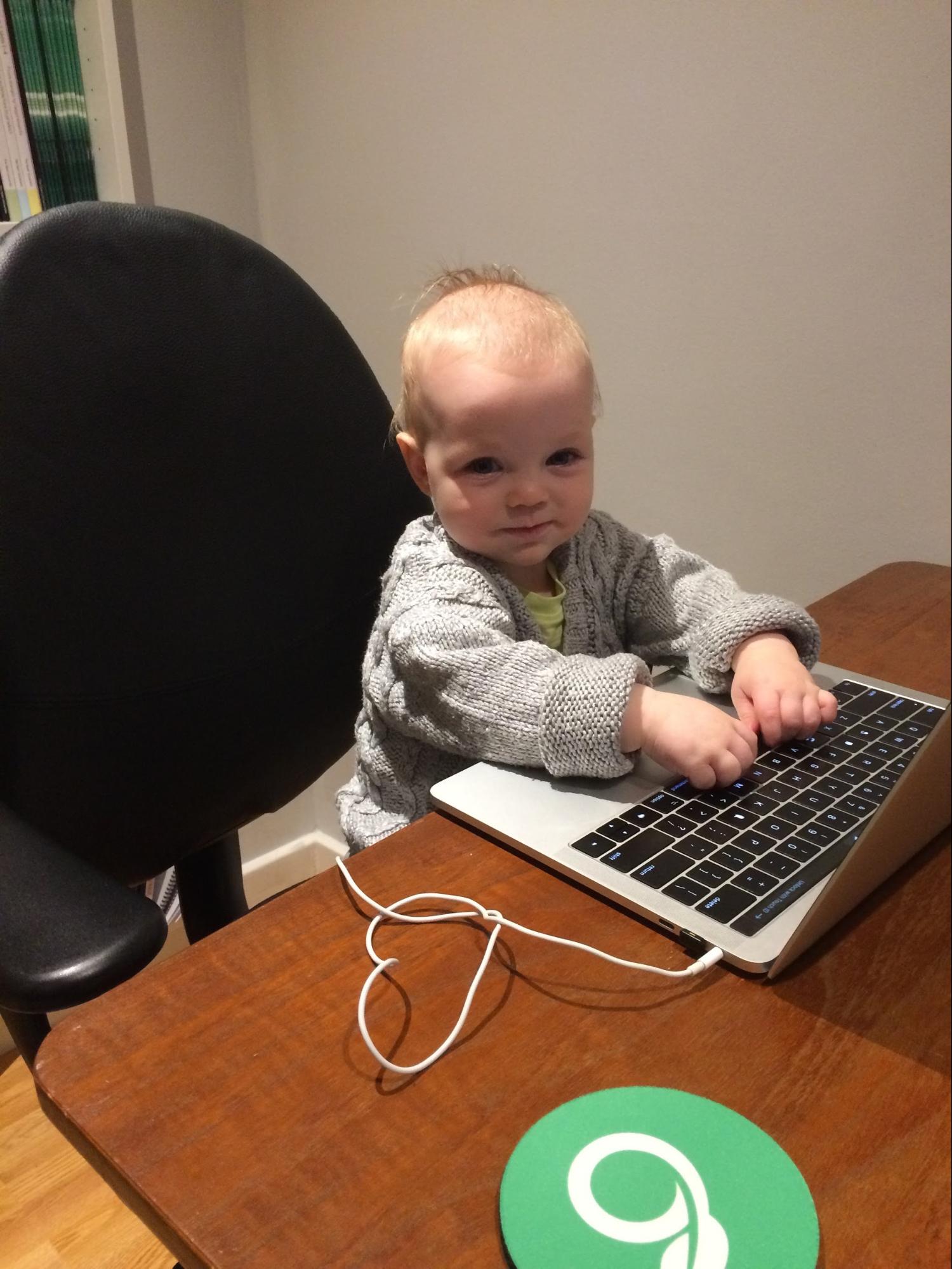
Simon Detheridge
As far as surviving 2020 goes, I consider myself very lucky. Although considered “extremely vulnerable” by the NHS, so I have hardly left the house since March, Overleaf was fully-remote before the pandemic. This means that my day-to-day work hasn’t changed much, and with that as well as having access to a garden I feel that I’ve fared better than many others.
A big change for me this year is that I’ve made the move back into a management role after joining Overleaf in 2018 as a developer to get some hands-on coding time. For this, I have embraced having a physical magnetic whiteboard to keep track of my tasks. I think it helps me stay organised by having the things I need to do on a physical board, instead of hidden in a tab on a browser window behind an editor on one of my monitors.
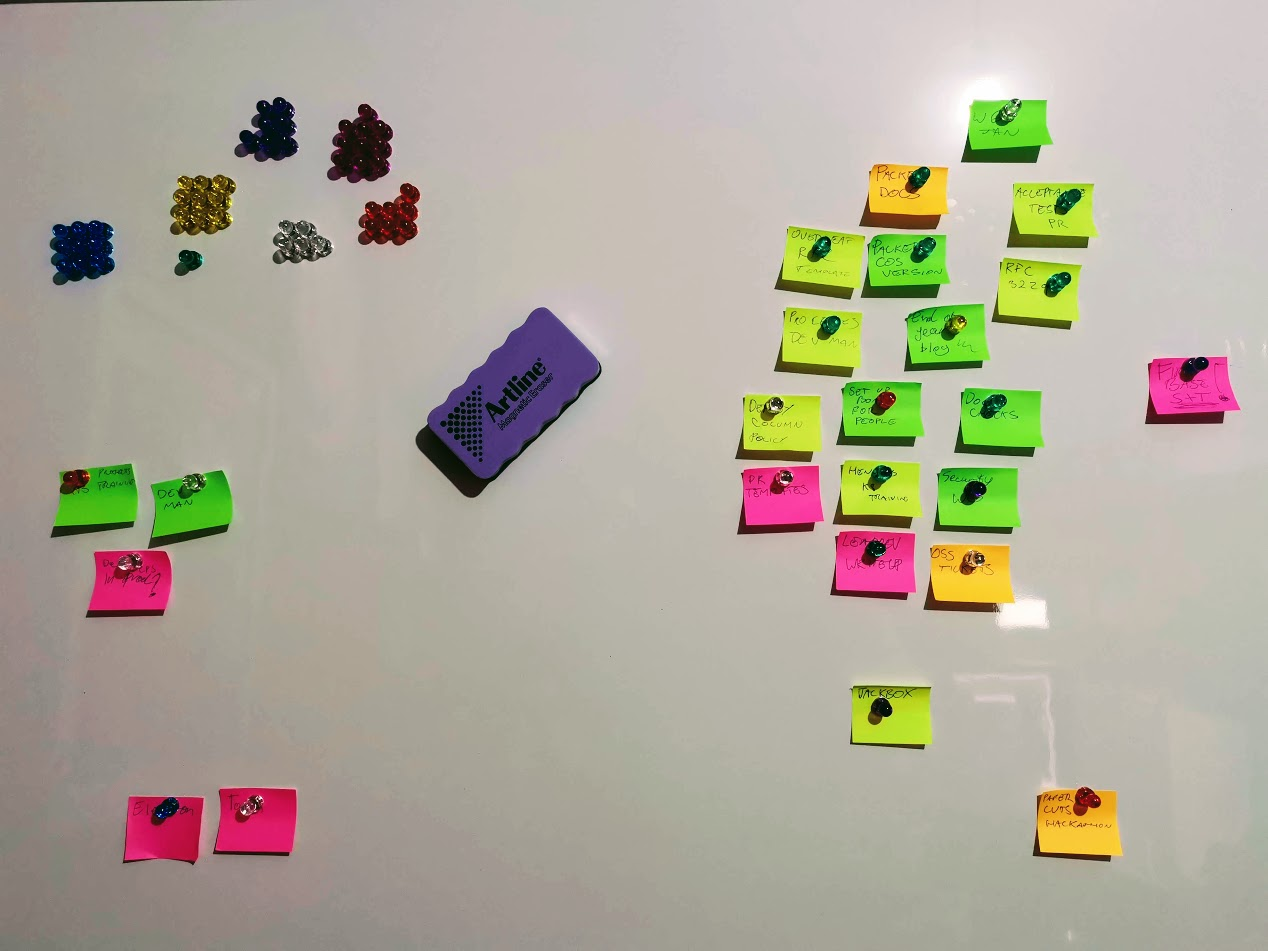
I’ve also found it to be a great source of motivation. As I no longer measure my productivity in closed tickets on Github, the “success pile” of done Post-it Notes has become my weekly reassurance that I am Getting Things Done.
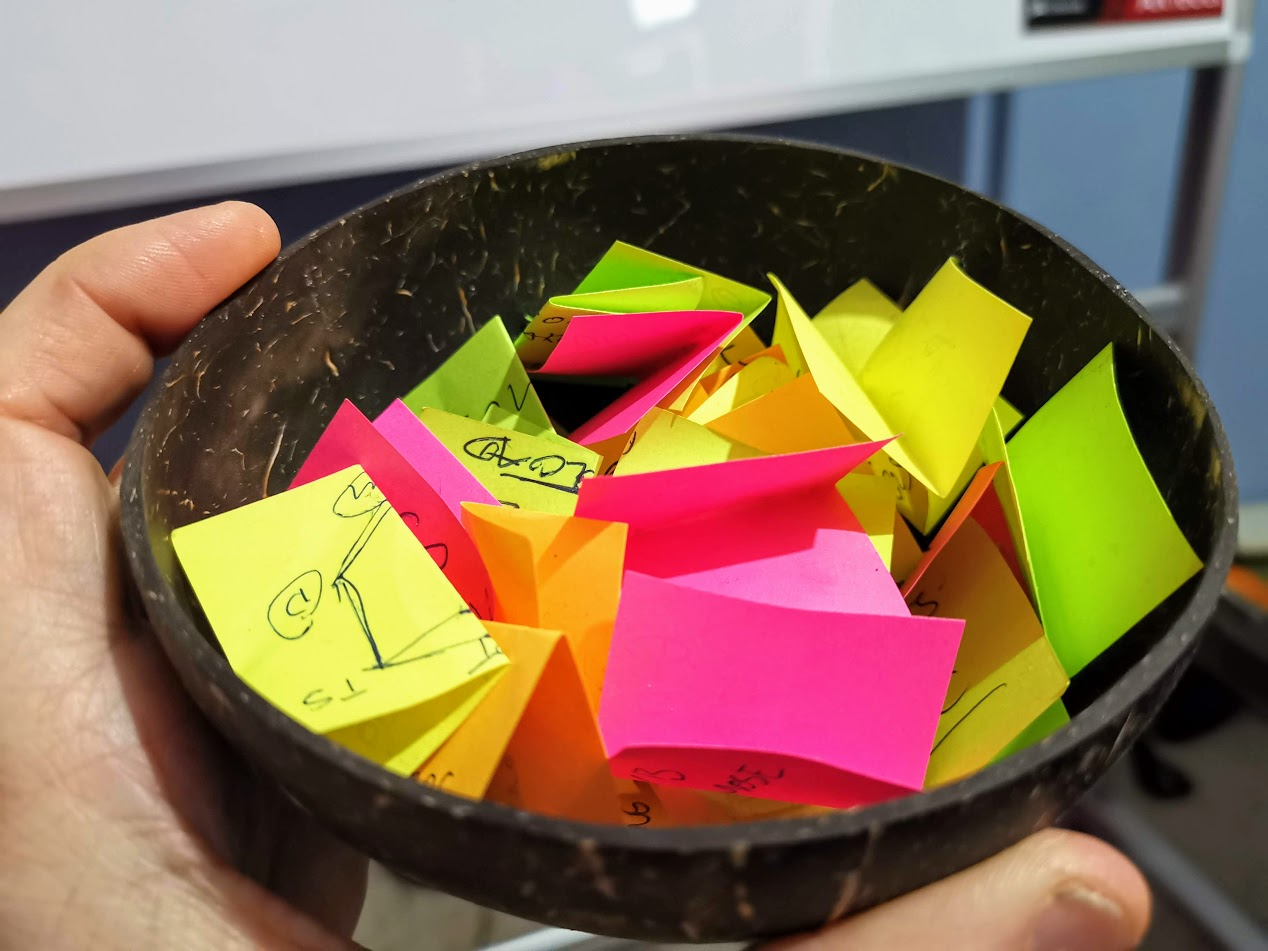
Graham Douglas
On a personal level I feel extremely lucky to have been working for Overleaf prior to the Coronavirus pandemic because, as a fully remote-working company, my day-to-day work has been little affected by the very necessary lockdowns and other restrictions put in place to combat this dreadful virus. As we approach the end of this infamous year, and the festive season looms, it is also a time to remember the many millions of people whose lives have, in so many ways, been severely affected through loss of their jobs, livelihoods and premature bereavement of dearly loved friends and family.
On work-related matters, I decided to write about a topic which many TeX and LaTeX users wrestle with: typesetting tables. Rather than attempt to document numerous examples of tables, and their corresponding TeX/LaTeX code, my approach has been to peel away the layers of macros and focus on the low-level inner workings of TeX engines: how, exactly, do TeX engines build and typeset tables? And what a journey this has proven to be, with many more nuances and complexities than I ever dared (feared!) to imagine.
Slowly the fog has lifted and the innumerable nuances (and complexities) became clear(er). It has required building several TeX engines from source code; using a C debugger to watch TeX’s low-level table algorithms in action; adding extra C code to coerce Knuth’s TeX and e-TeX to output SVG graphic representations of their internal preamble-list data, together with using or writing Lua scripts for LuaTeX to parse in-memory data structures representing typeset tables—particularly those containing spanned cells.
My overall aim has been to distill everything I’ve seen/learned into a comprehensive series of accessible articles which contain a substantial number of graphics that, hopefully, help to visualize the intricacies of TeX-based table typesetting. It has taken far longer than I imagined, partly due to the inherent complexities but also because table typesetting involves almost every aspect of TeX’s processing. This work will be published in early 2021 and, I hope, will be of some long-lasting value to current and future users of TeX and LaTeX.
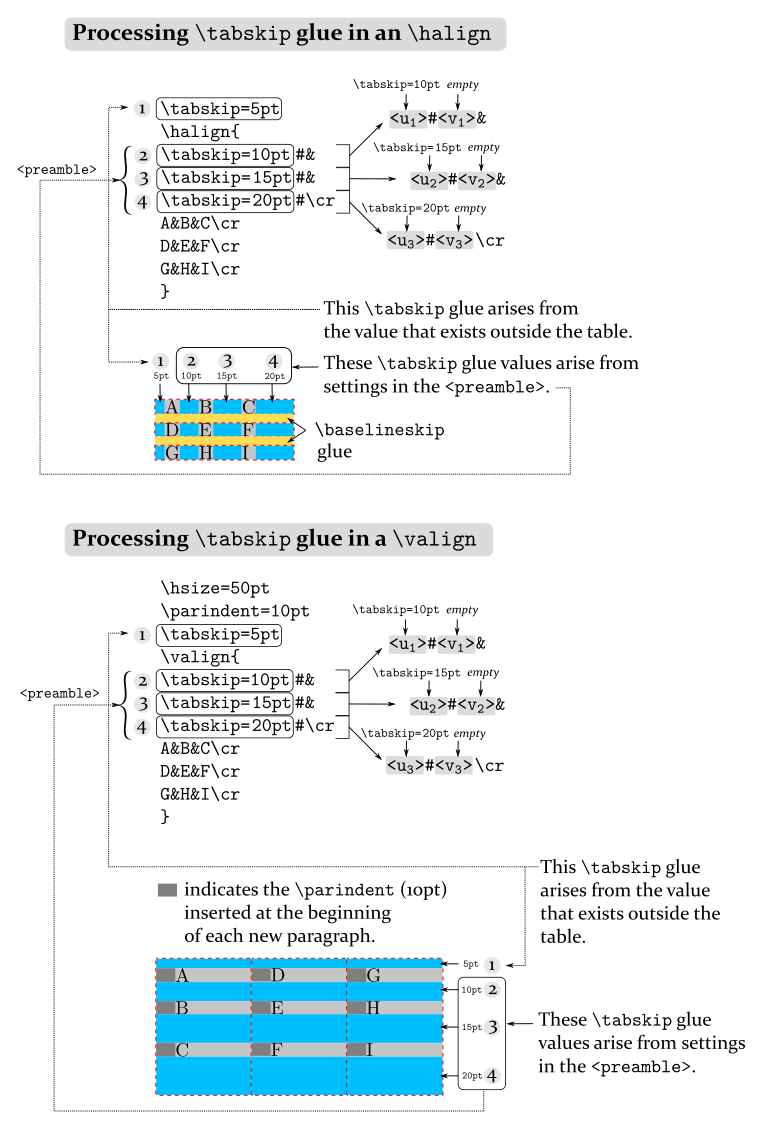
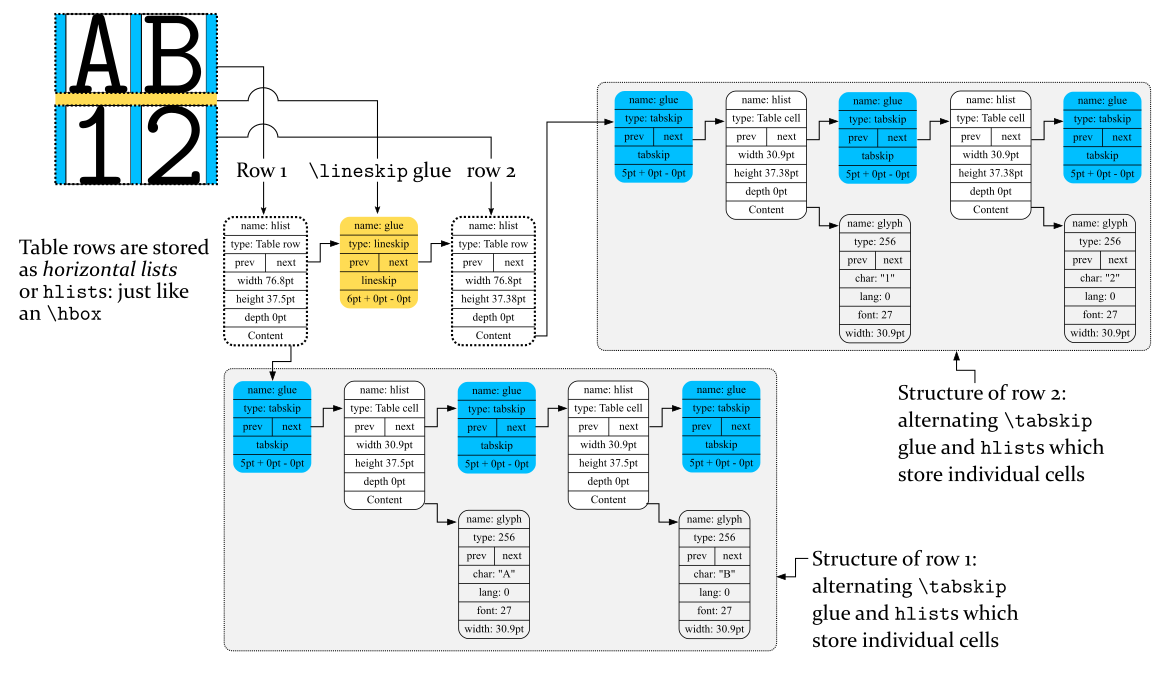
The above graphics are a tiny sample of the many that will appear in the forthcoming series on the mechanics of TeX’s table typesetting. Producing them certainly gave me ample opportunity to improve my Inkscape skills!
Throughout 2020 I continued to take advantage of the glorious countryside, not far from where we live in South Gloucestershire, to enjoy 10–15 mile walks every Sunday—weather and COVID-19 restrictions permitting. The freedom of open spaces, exploring the beautiful Cotswolds and discovering so many interesting places is just so liberating and refreshing—although cleaning muddy post-walk boots is slightly less interesting! I occasionally use the incredible mapping resources of the National Library of Scotland to explore old maps, seeking out the history of places we encounter on our walks. Their side-by-side view of old maps and satellite imagery is an amazing resource—if you enjoy that sort of thing!
In closing, 2020 brought another unwanted and worrisome period because our beloved Bengal cat, Oscar, developed an illness which necessitated life-saving surgery. Thankfully, due to the amazing care and skill of Langford Vets (part of the University of Bristol) Oscar pulled through and is now in good health and back to being his noisy, naughty and utterly loveable self. Here’s a recent photo of Oscar—because there aren’t enough cat pictures on the web 😁.
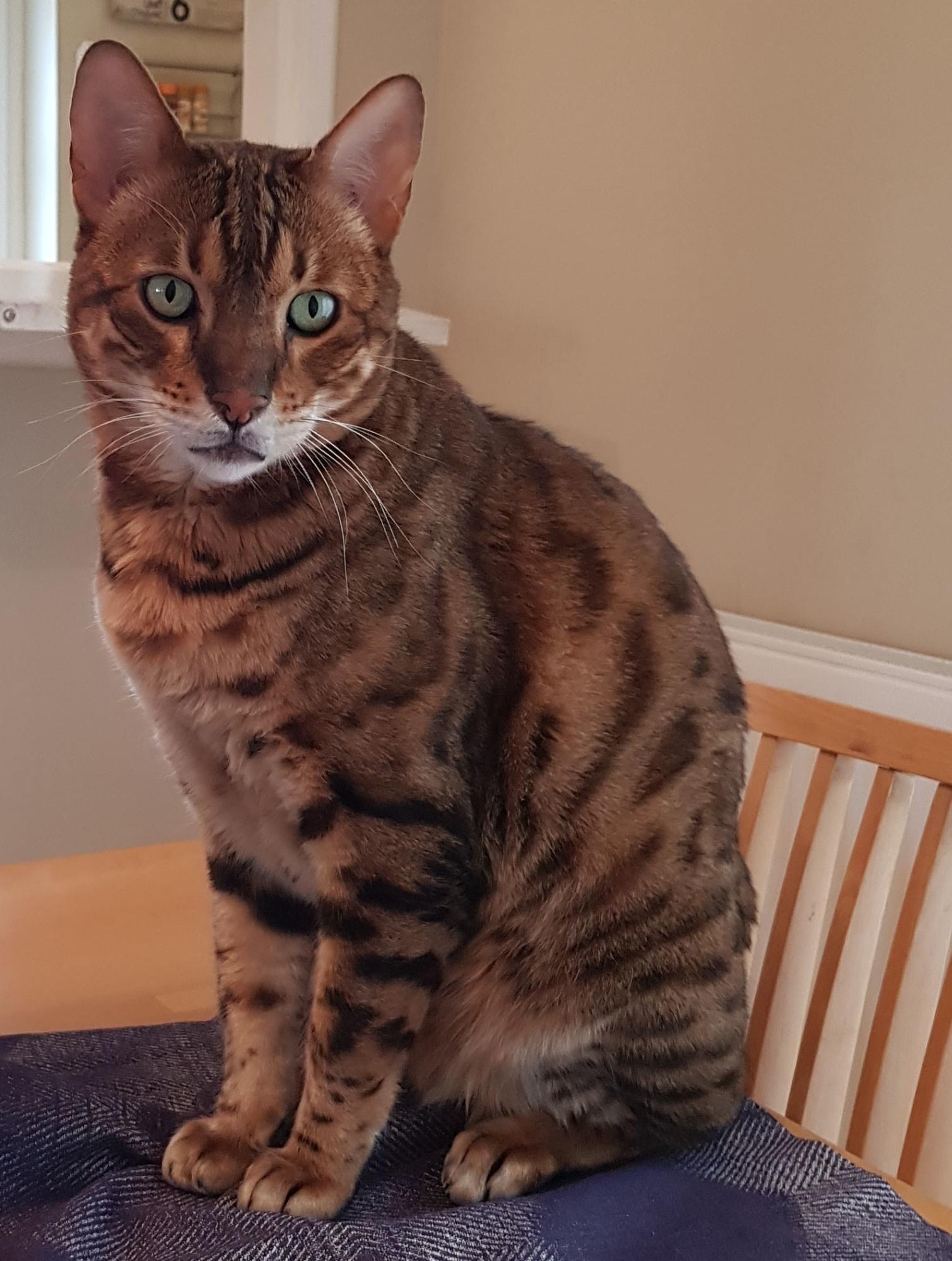
Oscar 😍.
To conclude my section of this blog post I’ll take this opportunity to wish you all the very best during the forthcoming seasonal festivities and a very happy, healthy and prosperous New Year for 2021. Let’s also hope that 2021 begins the return to a post-pandemic normality, whatever that may be.
Mary Anne Baynes
What a year! I feel like it’s totally flown by, and yet with COVID, so much has felt like a slog… it’s been a hard one. Things have thankfully been OK with me and my family. We’ve all stayed healthy and my twin 20 year-old boys are still in college—albeit all of their classes are remote. My husband and I have always worked remote, so things didn’t change much for our work environments, but having the boys home with us all-day every-day has made for a busy (and cramped!) house! 😊 My boys are working towards a career in Simulation and Game Development—Jacob focusing more on the development side and Adam focusing more on the artistic side (see a sample of his character sketches, below). At the same time, they’re still working as they can on the business they started called My Smart Grandkids (which helps seniors with technology). Needless to say, it’s been hit fairly hard by COVID restrictions and their need to keep their customers safe and healthy.
As for me, I still love working at Overleaf and feel so blessed to work with the most amazing, talented team of people ever! I’ve been here for over 5 years and continue to love it! It’s been nice to work with a company that was able to help during the pandemic and has a strong focus on helping our customers and community. Throughout this difficult year, it’s also been incredible to see the LaTeX community come together and help each other—such a wonderfully supportive community. With that, I hope you all have a very Merry Christmas, Happy Holiday and amazing New Year! 😊
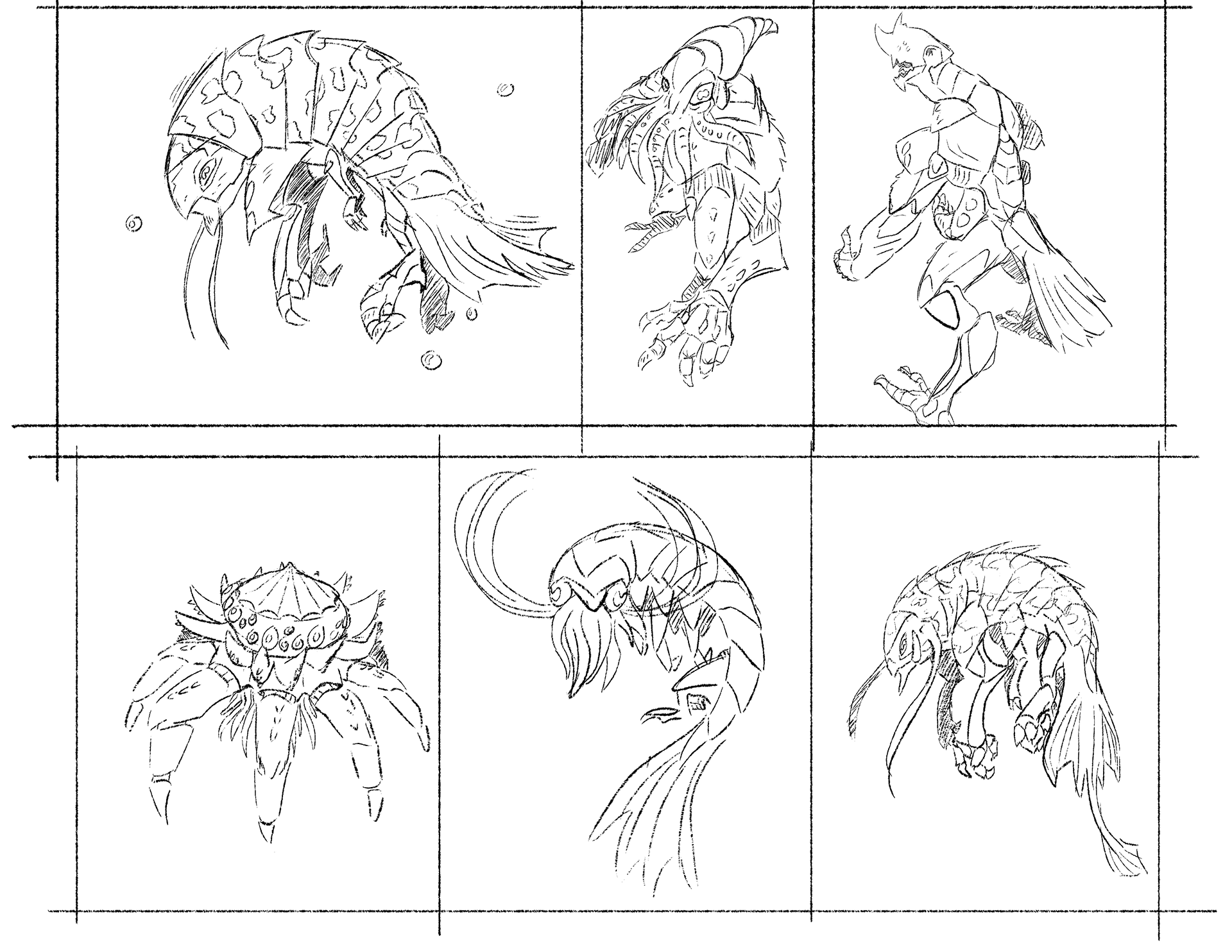
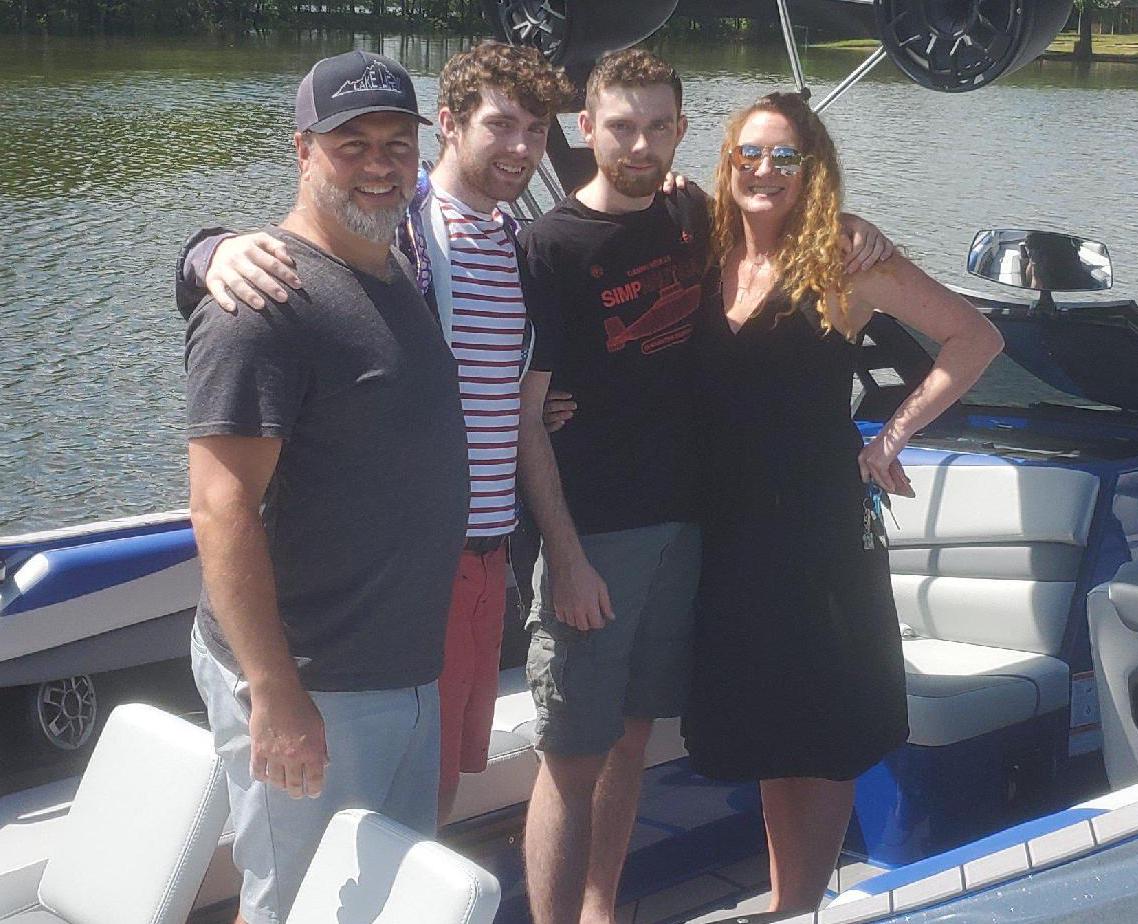
Christopher Hoskin
Having migrated Overleaf to Google Cloud last year, this year’s work has been about behind the scenes refinement. I reworked our old Jenkins CI box in Cloud Build, started making use of Identity Workload and Network Endpoint Groups. We switched to using SOPS for secrets management. I used Overleaf’s remote hackathon to fix a passport-saml bug to enable support for eduPersonTargetedID.
I’m very fortunate to be working in a role where the pandemic didn’t make much difference to my working life, although sadly getting a coffee in Common Ground has become a thing of the past, for the time-being. I missed out on having another go at manning a stall at an academic conference, and also giving a talk at the College IT Conference. However, I was pleased to be able to virtually attend the UK Federation Town Hall Week.
Outside of work, the pandemic cancelled a planned week with a couple of my mathematical acquaintances to continue the work we started last year. Instead, I used lockdown as an opportunity to do some more investigation into proof assistants. By August I had managed to verify a couple of pages from my D.Phil thesis in Isabelle—just another hundred and fifty eight to go (plus the sixty years of material from the literature which it depends upon)! I had a few frustrations with Isabelle, mostly its near-impenetrability to anyone without a solid grounding in computer science and mathematical logic, the performance of sledgehammer even when running on a reasonable spec laptop and being tied to an editor which I didn’t use for any other purpose.

Statement and proof of a Jordan*-triple equality in Isabelle. The proof was obtained using sledgehammer to consult the cvc4, vampire, e and z3 solvers. An Isar proof was also generated.

Statement and proof of the same Jordan*-triple equality in Lean, worked out by hand.
Whilst researching for a Show and Tell talk on proof assistants, I discovered that something of a community had built up around the Lean prover from Microsoft Research. I’d dismissed Lean when I’d initially surveyed proof assistants 3 years ago, as it didn’t then appear to have a library of what might loosely be described as “undergraduate maths” to start building upon. This situation has now improved with mathlib. There seems to be an effort to make Lean accessible to people like me through The Natural Number Game and Lean for the curious mathematician. I’m currently attempting to re-work the material I verified with Isabelle in Lean to see how they compare. I’m not qualified to comment on the philosophical underpinnings of the two systems, but the things I notice as a very naïve user are:
- Lean seems to have accumulated less “baggage” than Isabelle—probably just through being newer, and perhaps less ambitious in what it’s trying to achieve.
- Isabelle has the sledgehammer tool, which queries a range of third party tools to automate solving steps in your proof. Other than a few proofs of concept, Lean doesn’t have anything equivalent—even for Z3 which is also from Microsoft Research.
- As a consequence, you have to do much more thinking and manual steps with Lean, which, up to a point, I prefer as it encourages me to actually understand what is going on rather than leaving it to the computer.
- Lean’s input syntax is closer to LaTeX.
- It’s possible to write Lean proofs that read nothing like normal mathematics. I found Isabelle proofs usually looked more like a conventional mathematical argument.
- Isabelle can produce LaTeX output containing a mixture of formal reasoning and informal mathematical discussion, Lean doesn’t have this feature, as far as I know.
- Isabelle also has a much broader library of existing results available in the form of the peer-reviewed Archive of Formal Proof.
We still seem a long way from proof assistants being a standard part of a working mathematician’s toolkit, and there are many other assistants available than the two mentioned above. It will be very interesting to see how they evolve over the next decade.
My experiments in growing orchids from seed are continuing. A dozen Southern Marsh Orchids and around a gross of Green-veined Orchids made it through the first year, and I am counting to see how many re-emerge for 2021. A friend kindly gave me some Common Spotted Orchid seed from their garden, which I have successfully germinated. There was a lot less opportunity to get out and about this year, but I did manage to go looking for Helleborines in Savernake Forest and took this photo, which came second in the “close-up of an orchid, showing one or more entire inflorescences” class of the Hardy Orchid Society’s Photo competition.

Violet Helleborine, Savernake Forest, 7th August 2020.

Common Spotted Orchid Protocorm, 29th November 2020.
Next year is likely to include a house move—I hope my frozen shoulder recovers in time for the packing!
Liz Kluk
2020 was an interesting year indeed. I moved out of my apartment in the hustle and bustle of the city to a brand new ranch with my boyfriend and our best friend, my horse Prince 😍. My boyfriend and I also welcomed 2 new fur babies to our family: Rhea and Noel. Amidst all of the craziness in the world this year I spent time enjoying the simple things in life—spending time outside with my horses in addition to taking up 2 new hobbies, beekeeping and gardening. Nature truly is healing and is what helped me keep my sanity in 2020. My friends and family did not believe I would survive in the country, but I absolutely love it! Overleaf has been such a blessing in my life. I have a job that I absolutely love, and Overleaf provides me the opportunity to work remote so I can live in the country doing the two things that I love: sales and spending time with my animals.
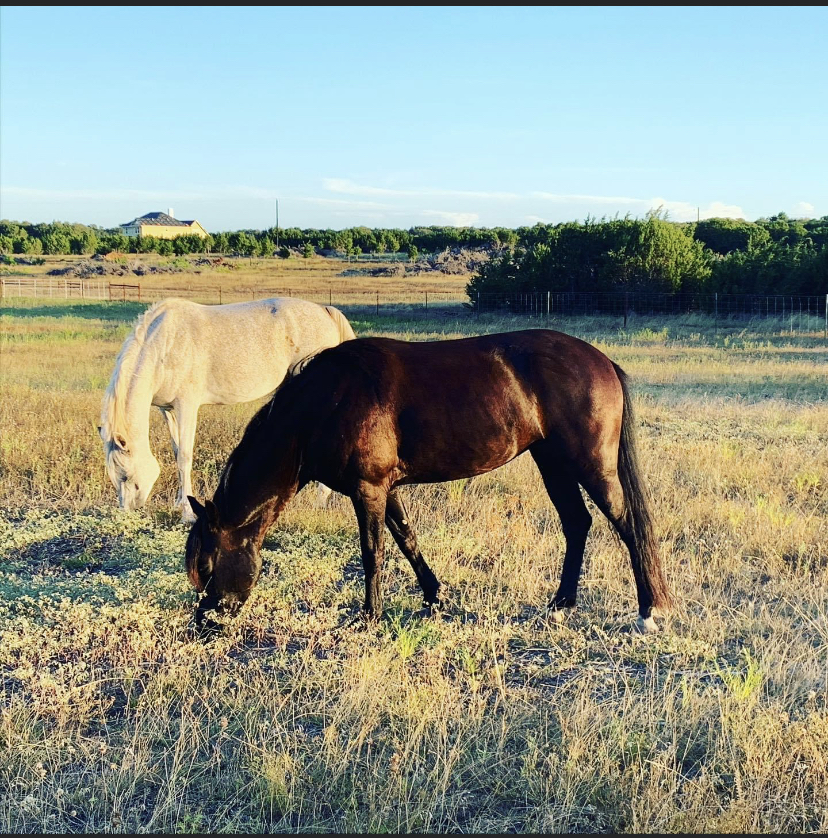
Prince (grey) and Rhea (Black).
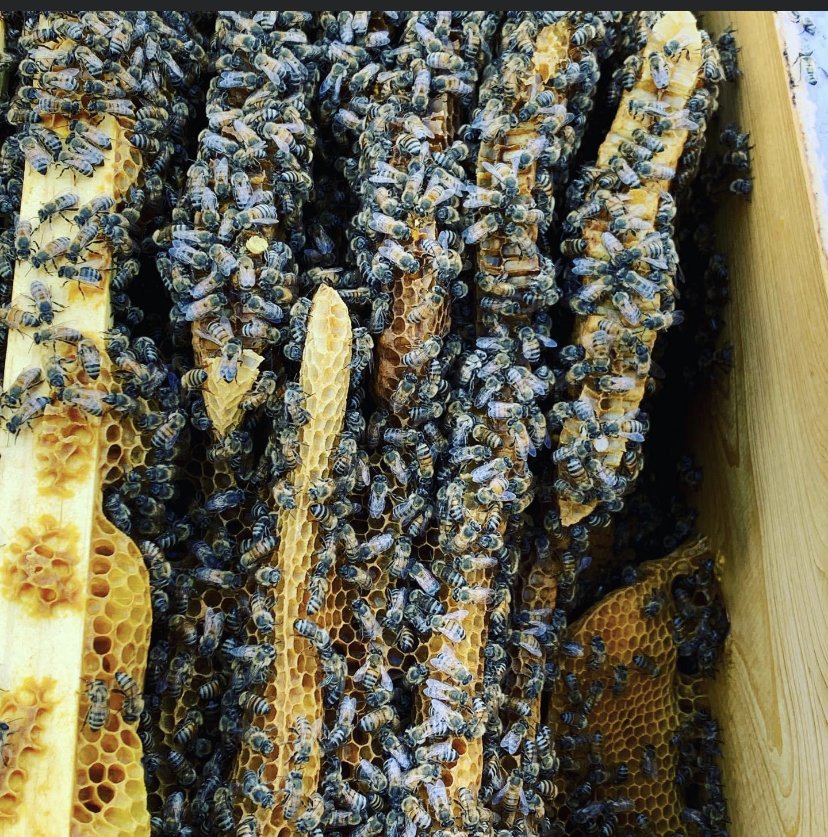
Busy bees!
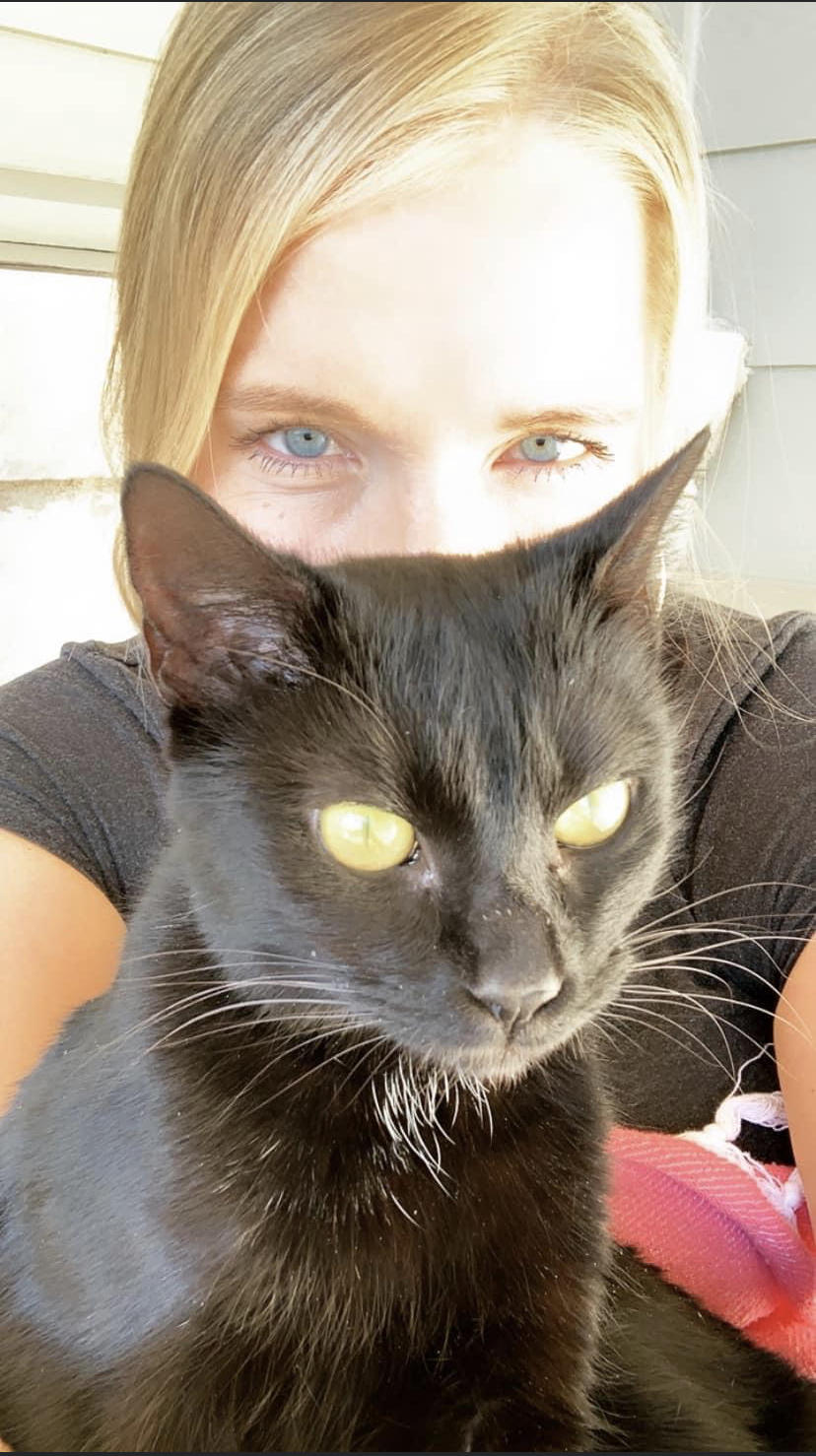
Noel, my adopted kitty.
Chrystal Griffiths
While 2020 has been a challenging year for all (solo lockdown was not always the most fun), some nice things did happen! After taking way more flights during a pandemic than was really necessary I decided to just move to the Netherlands to be with my boyfriend who is now my fiancé, as we got engaged shortly afterwards. At the moment I’m out in the countryside, but we’re trying to relocate to the city in the region of Overijssel.
I’m very grateful to be working for Overleaf and that I was able to move and keep working, and that COVID didn’t affect us as a company so much. I was able to work on the web side of things for the WFH2020 project, make the IEEE Collabratec API more complete and more recently I’ve been doing some of the React migration, which I’m really enjoying as I hadn’t worked with React extensively before. I can now see what all the fuss is about!
Let’s see what next year brings 😀.
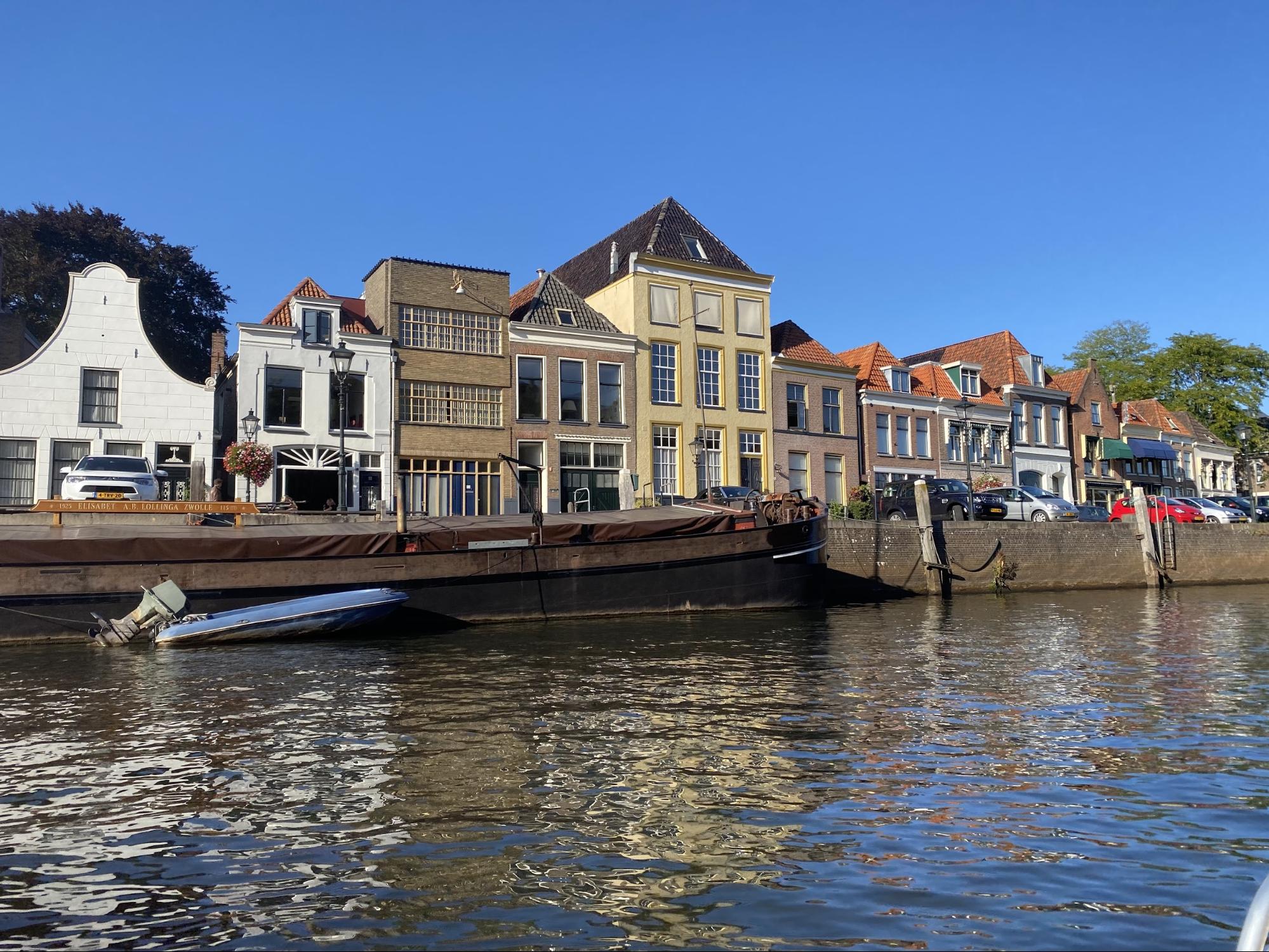
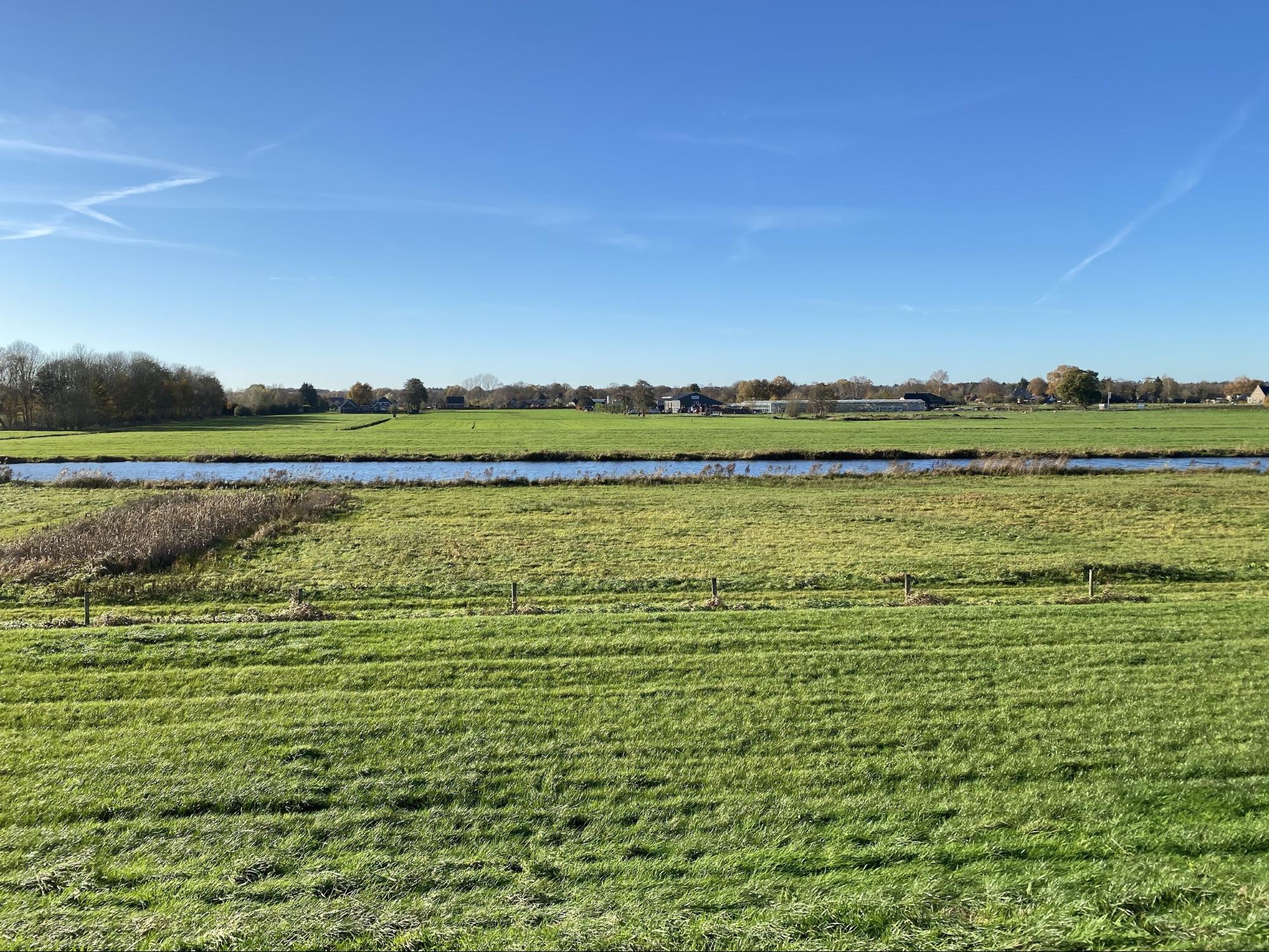
Roberta Cucuzza
2020 has been a year of learning and adapting for me, with some really nice achievements in between. Having moved house at the end of 2019, my plan for 2020 was to settle and grow roots in our new home—which certainly happened! We have really enjoyed our new big garden over the summer and we finally welcomed our whippet pup Salina to our family last month.
Because of lockdown I was also able to work on some other personal projects, such as receiving my Yoga teacher diploma, losing some weight and making lots of new hats!
From a work perspective, I have really enjoyed delivering on what we had promised on our roadmap (and more!) despite the sudden changes in the market. The File Outline feature was a good example of how great it is to work with very talented developers and stakeholders. I was also proud to have made lots of progress on our user research programme with 1:1 interviews, usability studies and surveys, which gave us lots of actionable insights to make Overleaf the best LaTeX editor in town!

LianTze Lim
Pretty sure that the first three words that come to many people’s minds will include “What a year!”. I’m raising my hat to all the scientists, medical workers, delivery riders and just about every single soul who has worked so, so hard to just keep life running.
Work-wise, it’s been another intensively busy year, sometimes on a soul-crushing level. Circumstances this year meant cloud-based collaborative tools became ever more useful; and we’ve been hearing from so many users! This year, online learning and webinars have also been very popular (thanks/no thanks again to circumstances); and I’m glad to have been able to reach our users via online webinars in a couple of different languages.
Looking on to 2021—I hope the world will be kinder to everyone, and us to each other!
Ali Smith
2020 has certainly been a tough year for everyone, but I am grateful for Overleaf being very flexible and remote. I’m also thankful for all the NHS staff and essential workers who have made this year bearable. And finally to scientists working to make 2021 a better year.
At work, this year has continued the theme of learning and (hopefully) improving in my Team Lead role. A huge thanks to all members of Team Aqua 💧 for all the hard work through exceptional circumstances.
The main project that stands out for me is our work on moving away from Angular.js towards React, starting with the new file outline feature. I was very happy to see the good feedback from Overleaf users about this! Behind the scenes, we’ve also been migrating parts of the existing code to React, which is a project that I have been thinking about since I joined Overleaf nearly 5 years ago. I’m excited to see the stability and productivity gains we make in the coming months.
Another big project was developing a Career Ladder for the engineering team. This involved running a Working Group which collaborated to decide what makes a successful engineer at Overleaf and using these discussions to define how to progress within the team.
My voluntary work with Code Your Future continued, where we successfully made the switch to remote classes. Big congratulations to our biggest ever class—London Class 6—for graduating in October! And good luck to London Class 7, who I hope to meet up with at some point next year.
Finally, I did manage to take a break from work during the summer and visited the Scottish mountains near Aviemore. The weather was (mostly) kind, so I enjoyed some hiking and even some swimming!
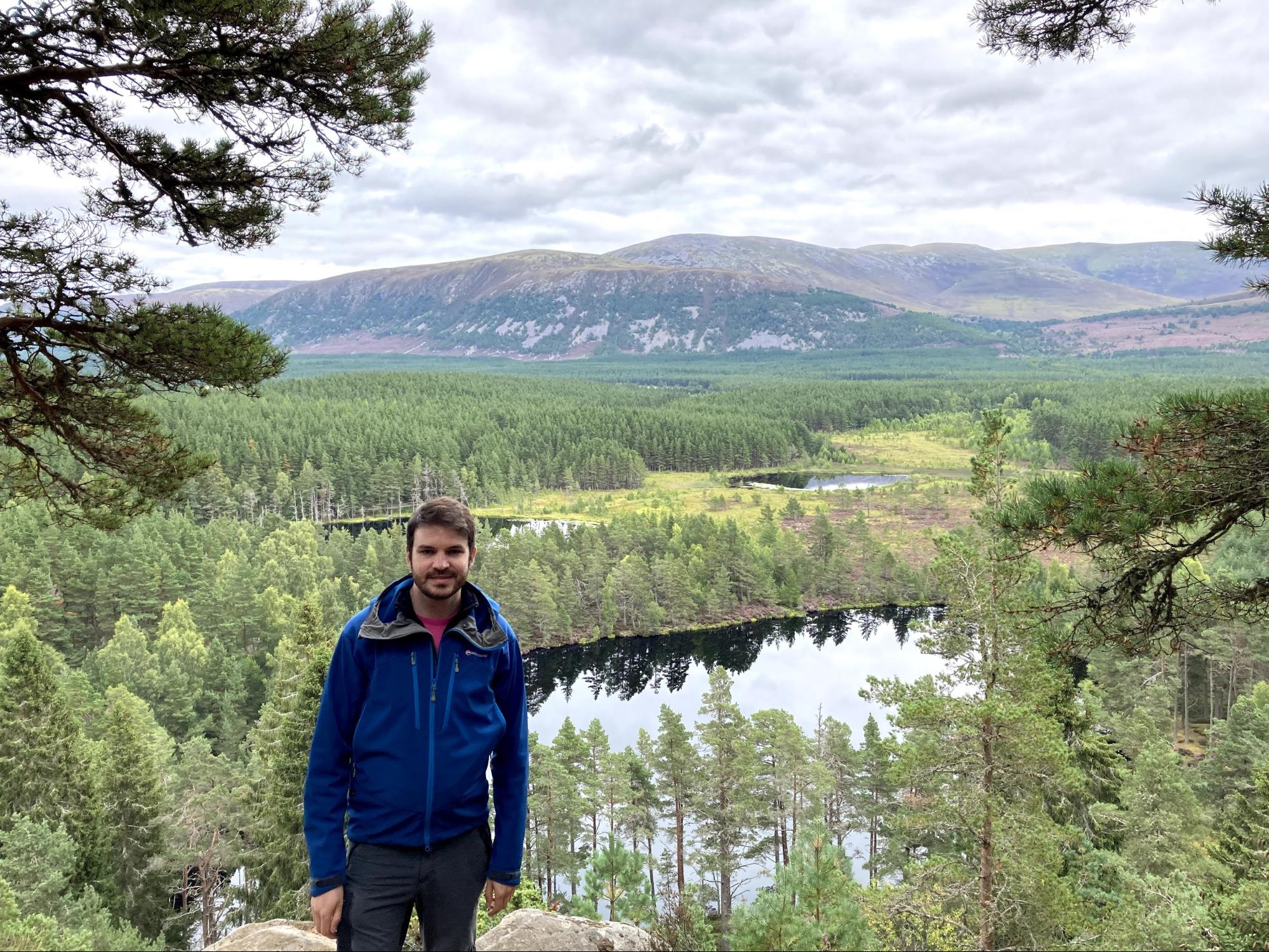
Miguel
2020 has been my first full calendar year working at Overleaf. I’m pretty happy with our growth and all the cool new stuff we’re providing to our users. Some new features, and lots of technical improvements, that I hope make scientists, researchers and other heros happy.
On a personal note, 2020 is the year I went back to Rock n' Roll! My new band, “Whiskería Tucson” is masked-up and getting ready to start giggin' in 2021. Stay tuned! 🤘
About the elephant in the room: I’ll just say how incredibly thankful I am to my Overleaf colleagues for being so helpful and supportive during this difficult 2020. You’re amazing!

Natalie
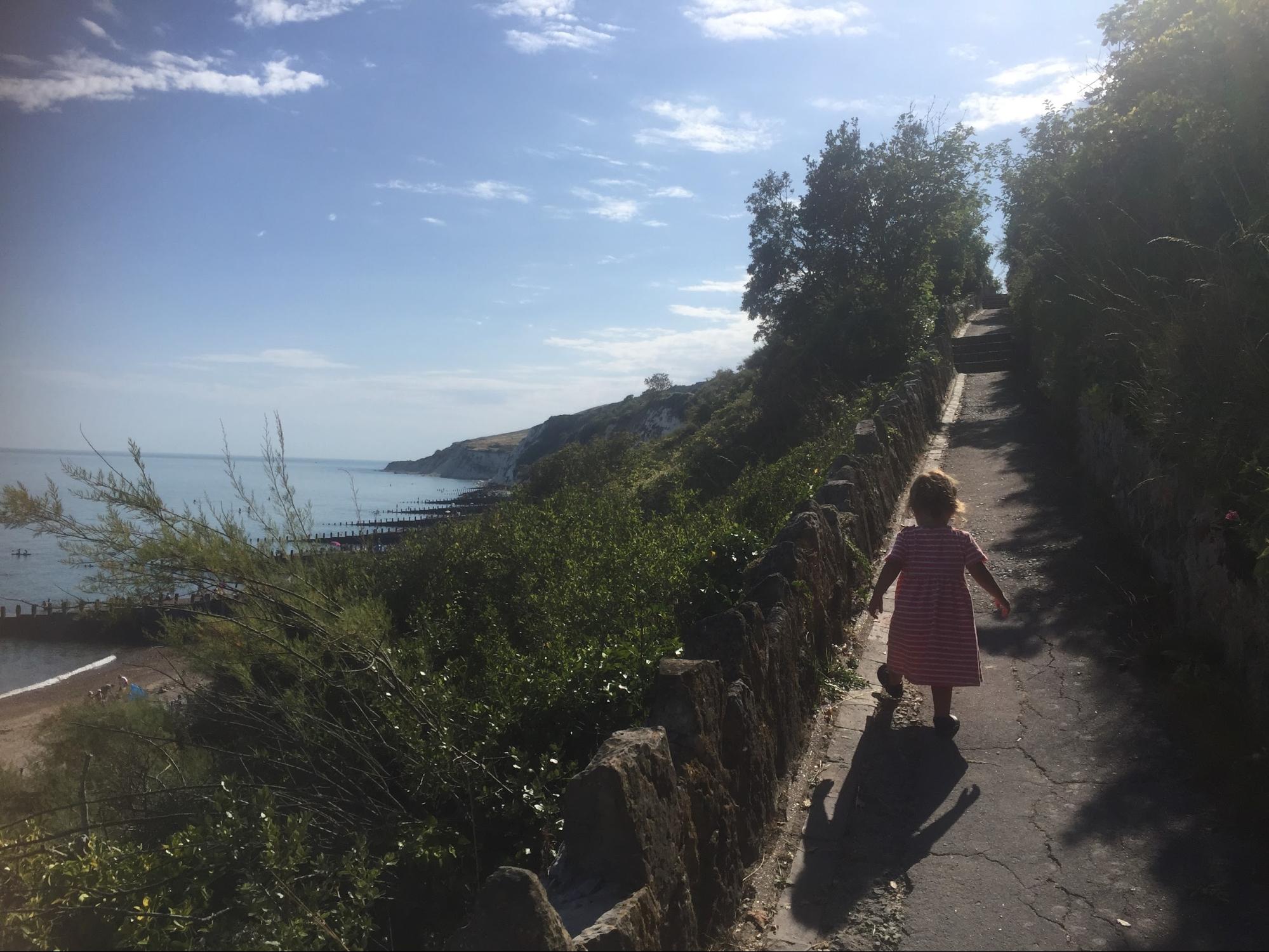
Wow, 2020 has been quite a year! Definitely one that won’t be forgotten. The pandemic has put a new perspective on so many things that I, for one, previously took for granted. Having the option to go out for dinner is a treat on many more levels now because, in London, we face our third lockdown this week. Also, being able to meet up with friends has become increasingly hard but, on the plus side, if you are lucky enough to have an evening out, table service now comes as standard in pubs—and “overcrowding”, what’s that!!?
I have managed to do some nice things over the year though: in the summer we had a heatwave and I made the most of it with lots of swimming in the sea—I feel that the English channel has never been so warm, or maybe I hardened to it! I also did a kite-surfing course which was fun, albeit in England with pretty ropey weather. Gotta love a British holiday! More recently, I’ve been on some nice walks and appreciated the change in season. And before all the craziness, I managed to fit-in a ski trip to Bulgaria for a friend’s 40th, which was fantastic. My daughter got to see snow for the first time too!
On a professional note, I started a new role this year as Enterprise Marketing Manager, working on the enterprise side of the business is an interesting place to be as there are still quite a lot of unknowns as well as a huge opportunity for growth. I’m looking forward to seeing how this market develops in 2021—it should be an exciting year!
Wishing everyone an enjoyable festive season and more sociable and less restrictive 2021!!
John H
As everyone has said, what a year it’s been! Certainly nothing like what we expected from 2020 back in January. But although in many ways it’s been the strangest and toughest year we’ve faced, we have been very fortunate compared to what many have been through. In particular, my thanks and gratitude go to all the amazing carers, doctors and healthcare workers who, on the frontline of this pandemic every day, strive to keep us all safe. Thank you all for doing such an amazing job.
To focus on the positives on a personal level, for me I have enjoyed the fact that I’ve had more time at home with my wife and our two beautiful daughters; they’re both at lovely ages (five and three) where everything is exciting and fun and interesting, and being able to spend so much time with them this year has been a real privilege. They’re both growing up so fast, and I am reminded of a comment I once read (I think it was on Paul Graham’s blog) that “the days are long but the years are short”, which I can certainly appreciate! Here’s to more fun times in 2021, and hopefully an end to the pandemic with the rollout of the vaccines worldwide.
